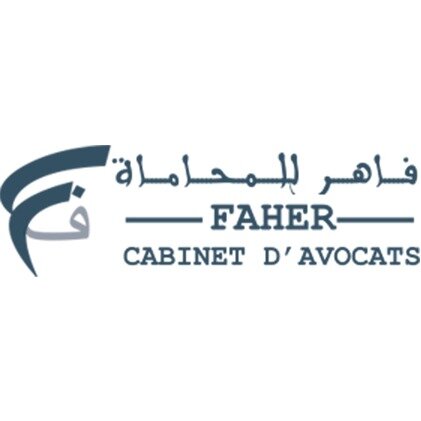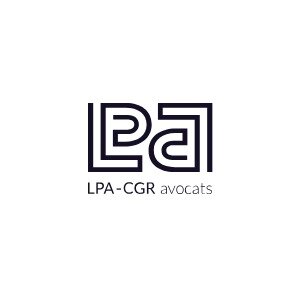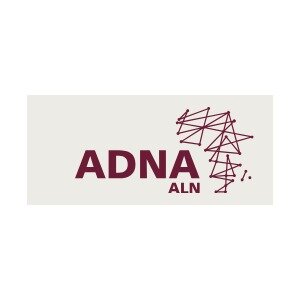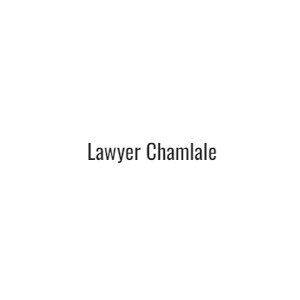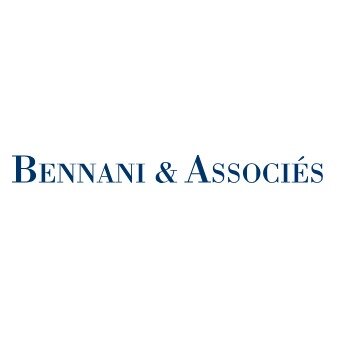Best Mining Law Lawyers in Casablanca
Share your needs with us, get contacted by law firms.
Free. Takes 2 min.
List of the best lawyers in Casablanca, Morocco
About Mining Law in Casablanca, Morocco
Mining Law in Casablanca, Morocco regulates the exploration, extraction, and commercialization of mineral resources within the country. Morocco boasts significant mineral wealth, including phosphates, lead, silver, copper, and zinc, making mining a critical part of its industrial and economic landscape. The legal framework aims to balance economic development with environmental stewardship and the protection of landowner and community rights. Key legislation includes the Mining Code, associated decrees, and environmental laws, all of which outline licenses, permits, rights, obligations, and compliance requirements for individuals and companies involved in mining activities.
Why You May Need a Lawyer
Engaging with legal counsel is essential for various reasons in the mining sector. Common situations where legal help may be required include:
- Acquiring exploration and exploitation licenses or permits.
- Negotiating mining contracts and joint ventures with local or foreign partners.
- Ensuring compliance with regulatory and environmental obligations.
- Resolving disputes over land use, boundaries, or overlapping rights.
- Interpreting the constantly evolving Moroccan mining laws and regulations.
- Facilitating foreign investment and navigating local content requirements.
- Addressing community concerns and adhering to corporate social responsibility mandates.
- Managing mergers, acquisitions, and transfer of mining rights.
- Handling government inspections or enforcement actions.
- Protecting intellectual property, such as proprietary mining technology and geological data.
Given the technical complexity and regulatory demands of the mining sector, legal advice helps secure lawful operations and minimizes the risks of sanctions, fines, or project delays.
Local Laws Overview
Morocco’s mining sector is governed primarily by the Mining Code, enacted by Law No. 33-13, as well as numerous decrees, regulations, and environmental statutes. The key aspects of local laws relevant to Mining Law in Casablanca include:
- Licensing System: Mining activities require official authorization, often through prospecting licenses, exploration permits, or exploitation permits, depending on the activity’s stage.
- Local Ownership and Investment: While foreign investment is encouraged, specific obligations regarding local partnership and content may apply.
- Environmental Regulations: Projects must undergo environmental impact assessments and comply with environmental protection laws to mitigate harm to ecosystems or communities.
- Land Rights: As mining rights may overlap with private or community land, resolutions involving compensation or land use agreements are frequent.
- Community and Labor Provisions: Mining companies must adhere to labor standards and, in some cases, provide community development benefits.
- Taxation and Royalties: The sector is subject to specific taxes and royalties, including state revenue sharing from mineral exploitation.
- Dispute Resolution: Disputes may be settled through the courts or, in some instances, arbitration, according to Moroccan law.
Understanding these national and local requirements is crucial for anyone involved in mining projects in Casablanca or broader Morocco.
Frequently Asked Questions
What types of mining licenses exist in Morocco?
Morocco issues prospecting licenses, exploration permits, and exploitation permits, each with specific rights, durations, and obligations depending on the project’s phase.
Can foreigners own mining rights or operate mining companies in Morocco?
Yes, foreign individuals and entities can hold mining rights or operate mining businesses, subject to Moroccan investment regulations and any local partnership requirements.
What environmental regulations must mining projects comply with?
All mining projects must undergo environmental impact assessments and comply with applicable laws focused on pollution control, land rehabilitation, and the protection of water resources and biodiversity.
How are mining rights obtained in Casablanca?
Mining rights are obtained by applying to the Ministry of Energy Transition and Sustainable Development. Applicants must fulfill legal criteria and submit technical and financial information demonstrating project viability.
Are royalties or taxes imposed on mining activities?
Yes, mining companies are subject to royalties on mineral production, as well as sector-specific taxes. The rate and calculation method may vary depending on the mineral and type of license.
How are disputes over land or mining rights resolved?
Disputes can be resolved through Moroccan courts or, in some cases, by arbitration. Early negotiation and mediation are also possible, especially when dealing with local communities.
What health and safety standards apply to mining in Morocco?
Moroccan Mining Law sets out comprehensive health and safety obligations for mining companies, covering workplace conditions, worker training, and regular safety inspections.
Are there community or local benefit requirements for mining projects?
Many mining projects are required to implement social responsibility initiatives benefiting local communities, such as infrastructure, employment, or environmental restoration.
What happens if mining activities cause environmental damage?
Mining companies are legally obligated to restore or compensate for environmental harm. Violations can result in fines, remediation orders, or, in severe cases, license suspension or revocation.
How long does it take to obtain a mining license in Casablanca?
Timeframes vary based on the project type and required documentation, but license issuance may take several months due to thorough assessments and regulatory reviews.
Additional Resources
For further information and assistance, consider contacting or consulting the following:
- Ministry of Energy Transition and Sustainable Development - the primary governmental body overseeing mining activities.
- National Office of Hydrocarbons and Mines (ONHYM) - responsible for managing geological data and resource development.
- Moroccan Bar Association - for locating qualified Mining Law attorneys in Casablanca.
- Chamber of Commerce, Industry and Services of Casablanca - for investment guidance and business registration.
- Environmental NGOs and local consultancies specializing in mining impact assessments.
These organizations can provide guidance on licensing, legal compliance, and sector-specific regulations. For foreign investors, business consultants and law firms with expertise in Moroccan Mining Law can be invaluable for navigating local procedures.
Next Steps
If you need legal assistance in the field of Mining Law in Casablanca, start by clearly defining your objectives, whether it involves obtaining a license, resolving a dispute, or seeking investment counsel. Gather all relevant documents, such as project plans, correspondence with authorities, or environmental reports. Next, consult a qualified lawyer with expertise in Moroccan Mining Law who can advise you on your rights and obligations, assist with negotiations, and represent you before governmental bodies or in court if necessary. Acting proactively will help ensure compliance, protect your interests, and contribute to the successful execution of your mining project in Morocco.
Lawzana helps you find the best lawyers and law firms in Casablanca through a curated and pre-screened list of qualified legal professionals. Our platform offers rankings and detailed profiles of attorneys and law firms, allowing you to compare based on practice areas, including Mining Law, experience, and client feedback.
Each profile includes a description of the firm's areas of practice, client reviews, team members and partners, year of establishment, spoken languages, office locations, contact information, social media presence, and any published articles or resources. Most firms on our platform speak English and are experienced in both local and international legal matters.
Get a quote from top-rated law firms in Casablanca, Morocco — quickly, securely, and without unnecessary hassle.
Disclaimer:
The information provided on this page is for general informational purposes only and does not constitute legal advice. While we strive to ensure the accuracy and relevance of the content, legal information may change over time, and interpretations of the law can vary. You should always consult with a qualified legal professional for advice specific to your situation.
We disclaim all liability for actions taken or not taken based on the content of this page. If you believe any information is incorrect or outdated, please contact us, and we will review and update it where appropriate.




